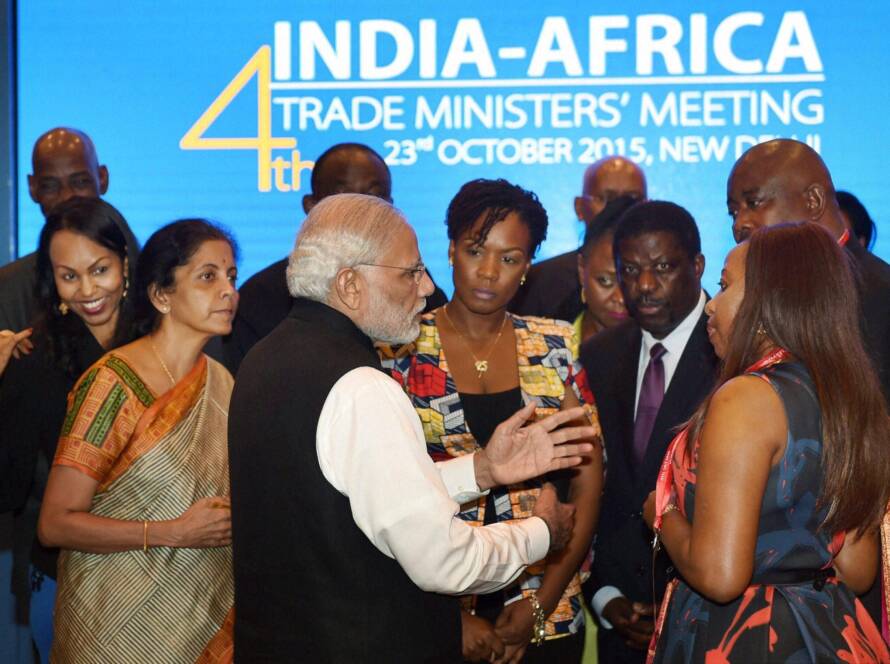By Flavia Gunarathna
In a significant stride towards economic revitalization, Thailand and Sri Lanka signed a Free Trade Agreement (FTA), marking an important moment in diplomatic and economic relations between the two nations. As Sri Lanka grapples with its worst financial crisis in decades, the FTA is anticipated to play a crucial role in fostering economic growth and recovery.
One of the objectives of the FTA is to enhance market opportunities for both Thailand and Sri Lanka. By eliminating or reducing trade barriers, the agreement facilitates a more seamless flow of goods and services between the two countries. Sri Lanka, in particular, seeks to expand its market access, enabling its businesses to tap into the vast consumer base in Thailand and vice versa.
In 2021, the two-way trade stood at USD 460 million, with Sri Lanka exporting tea and precious stones to Thailand and importing electronic equipment, food, rubber, plastics, and pharmaceuticals. The new FTA is expected to substantially increase this figure to around USD 1.5 billion in the coming years.
The signing of a new bilateral air services agreement goes beyond trade and extends into the realm of enhanced connectivity. By replacing the outdated 1950 agreement, the new accord emphasizes the commitment of both countries to improving aviation relations.
The agreement not only enables liberalized air services between Thailand and Sri Lanka but also signals a willingness to foster people-to-people contact and tourism. This is crucial for expanding economic cooperation, cultural exchange, and tourism-related activities between the two nations.
As part of the new bilateral air services agreement, Thailand has committed to resuming daily flights to Colombo, the capital of Sri Lanka. This decision holds strategic importance as it not only facilitates increased business travel but also boosts tourism, creating more opportunities for people-to-people interactions.
The resumption of daily flights reflects a commitment to strengthening economic ties by ensuring efficient and regular connectivity between the two countries. It is expected to play a vital role in realizing the projected substantial rise in bilateral trade by facilitating smoother and more frequent business interactions.
The Memorandum of Understanding (MoU) signed between the Gem and Jewelry Research and Training Institute of Sri Lanka and the Gem and Jewelry Institute of Thailand underscores a commitment to enhanced cooperation in the gem and jewelry sector.
This collaboration is multifaceted and may include joint research initiatives, the sharing of expertise, and collaborative training programs. Given the rich cultural heritage and expertise of both countries in the gem and jewelry industry, this cooperation holds the potential to elevate the stature of both nations in the global market. It opens up opportunities for mutual growth, innovation, and the exchange of best practices in gem and jewelry craftsmanship.
Thai Prime Minister Srettha Thavisin’s optimism regarding the Free Trade Agreement (FTA) during his visit to Colombo underscores the transformative potential and positive impact both countries envision. Thavisin emphasized the vast business opportunities that the FTA presents for Thailand and Sri Lanka. This optimism is rooted in the belief that the FTA will serve as a catalyst for economic growth, job creation, and the overall enhancement of the business environment.
Thailand, as a major player in the Southeast Asian region, sees the FTA as a strategic gateway to tap into Sri Lanka’s market and leverage its economic potential. The removal or reduction of trade barriers and the establishment of a more favorable regulatory environment are expected to encourage Thai businesses to explore and invest in diverse sectors within Sri Lanka.
Additionally, the FTA provides Thai exporters with a competitive edge by facilitating easier access to Sri Lanka’s market for goods and services. President Ranil Wickremesinghe echoed the optimistic sentiments expressed by Prime Minister Thavisin, emphasizing the untapped potential for expanding trade and investment ties between Thailand and Sri Lanka. This acknowledgement reflects Sri Lanka’s recognition of the FTA as a pivotal instrument for revitalizing its economy and fostering long-term economic partnerships.
President Wickremesinghe alluded to untapped potential across various sectors, including trade, tourism, and investment. Sri Lanka envisions the FTA as a catalyst for attracting foreign direct investment, diversifying its export base, and promoting economic resilience. By engaging in economic cooperation with Thailand, moreover, Sri Lanka aims to leverage its strategic location in the Indian Ocean to become a hub for trade and investment in the region.
These comprehensive agreements, which span vital sectors including trade, aviation, gem and jewelry collaboration, and defense, signify a profound commitment from both countries to constructing a resilient and enduring partnership. The all-encompassing nature of these agreements underscores a strategic vision that extends far beyond traditional economic partnerships.
By incorporating trade, aviation, gem and jewelry cooperation, and defense, both Thailand and Sri Lanka are acknowledging the multifaceted nature of international relations. This holistic approach aims to foster a comprehensive and interconnected collaboration that addresses various aspects of their bilateral ties. While the economic benefits are undeniable, the commitment to building a robust and enduring partnership goes well beyond immediate financial gains.
The inclusion of shared values and cultural ties in these agreements emphasizes a deeper connection, acknowledging the historical and cultural bonds that have long existed between the two nations. This signifies a commitment to not only economic prosperity but also the fostering of understanding, mutual respect, and appreciation of each other’s cultural heritage. The Free Trade Agreement (FTA), emerging as the centerpiece of this collaborative effort, is poised to play a transformative role.
As it takes center stage, the FTA is not merely a trade pact; it is a cornerstone in the broader economic transformation and integration of Sri Lanka within the Asia-Pacific region. By facilitating increased market access, promoting smoother trade processes, and encouraging cross-border investments, the FTA sets the stage for Sri Lanka’s emergence as a key player in the dynamic economic landscape of the region. Both countries have strategic significance in the move undertaken by Thailand and Sri Lanka.
For Thailand, it represents an opportunity to consolidate its economic influence in the Indian Ocean region, tapping into Sri Lanka’s strategic location and emerging markets. Simultaneously, for Sri Lanka, these agreements provide a strategic pathway for economic recovery and growth, positioning the nation as a hub for regional commerce and collaboration.
Flavia Gunarathna is an undergraduate at the Ragama Medical Faculty who is interested in international relations and global politics.
Factum is an Asia Pacific-focused think tank on International Relations, Tech Cooperation, and Strategic Communications accessible via www.factum.lk.
The views expressed here are the author’s own and do not necessarily reflect the organization’s.


